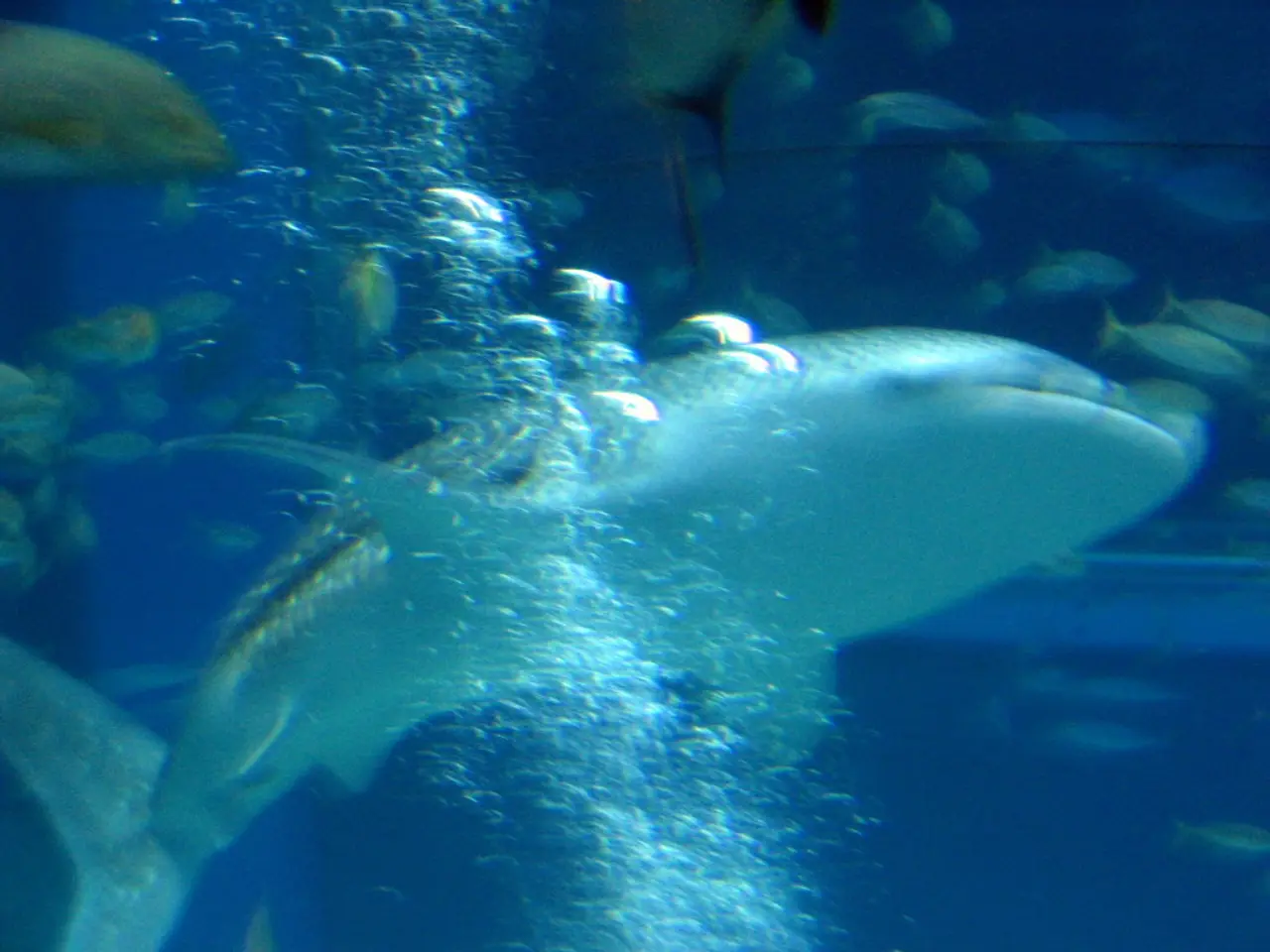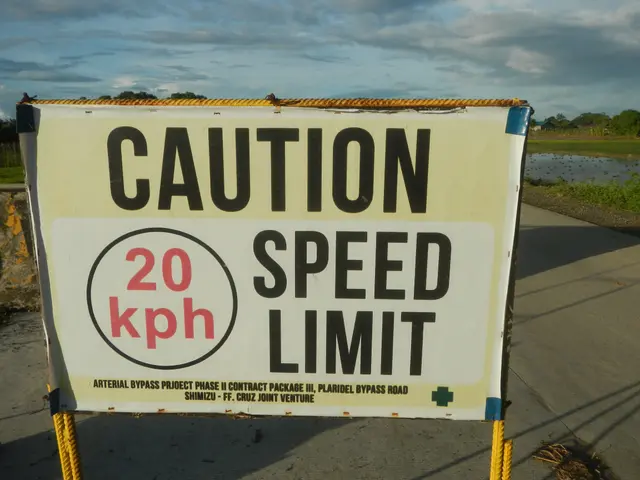Shark, specifically a great white, navigates the shallow coastal waters of Cape Cod, Massachusetts, a renowned destination for shark-centered eco-tourism activities.
In the coastal town of Chatham, Cape Cod, a surprising new normal has emerged - the presence of great white sharks. Over the past few years, the region has become a hotspot for these apex predators, drawing the attention of both tourists and researchers alike.
The abundance of great white sharks off Cape Cod can be attributed to several key factors. One of the primary reasons is the rich feeding ground provided by the growing seal population in the area. Seals, being the preferred prey of great whites, have been thriving in Cape Cod's waters since the establishment of stable seal pupping colonies in the early 1990s [1][2].
Conservation laws and protections have also played a significant role in the recovery and growth of both the seal and shark populations in the region. In 1997, the U.S. government designated white sharks as a prohibited species, and Massachusetts followed suit in 2005 [1]. Despite these measures, cage diving with great whites remains illegal in Massachusetts, and charters are prohibited from intentionally baiting or dumping chum for white sharks within state waters [1].
Seasonal migration patterns also contribute to the influx of great whites off Cape Cod. During spring and early summer, these sharks migrate northward in search of cooler waters rich in prey along the Atlantic coast [3]. As a result, Cape Cod's waters, which are known to be one of the world's densest seasonal concentrations of adult white sharks, become a popular destination for these predators.
Researchers have been actively tracking and studying great white sharks in the area since 2009. Over 120 sharks have been tagged, demonstrating a growing population linked to expanding grey seal colonies [2]. Notably, large sharks like the 14-foot "Contender" have been tracked migrating near Cape Cod, highlighting the region's importance as a habitat for adult great whites [3].
The increase in great white shark sightings has led to the development of new tour options, such as the Shark Receiver Tour and the Whale and Dolphin Conservation group tours, offered in collaboration with the Atlantic White Shark Conservancy (AWSC) and Chatham Bars Inn [1]. These tours allow guests to check shark tags with a hydrophone, shoot video with an underwater GoPro, and record observations for the research team [1]. Additionally, guests on AWSC tours often report shark sightings to the Sharktivity App, which aims to raise public awareness of white sharks and keep beaches safer [1].
More than a dozen operators offer boat tours to see white sharks in Shark Alley, a stretch of ocean along Cape Cod's Nauset Beach, Chatham, and Monomoy Island [1]. The return of great white sharks to Cape Cod has not only brought excitement and tourism but has also become a source of pride for the local community.
References: [1] "Great White Sharks: A New Normal off the Coast of Cape Cod" - The Boston Globe [2] "Great White Shark Population Booms off Cape Cod" - National Geographic [3] "The Ecology and Conservation of White Sharks in the Northwest Atlantic" - Marine Ecology Progress Series [3] "White Shark Population Growth in the North Atlantic" - The Anderson Cabot Center for Ocean Life at the New England Aquarium
Read also:
- Germany's three-month tenure under Merz's administration feels significantly extended
- Hurricane-potential storm Erin forms, poised to become the first hurricane in the Atlantic Ocean this year.
- Skepticism About Climate Change Previously Held; Factors That Shifted Perspective Revealed
- Heavy rain causes flash floods in Hyderabad, resulting in severe waterlogging and disruptions to city life during a heavy downpour.







